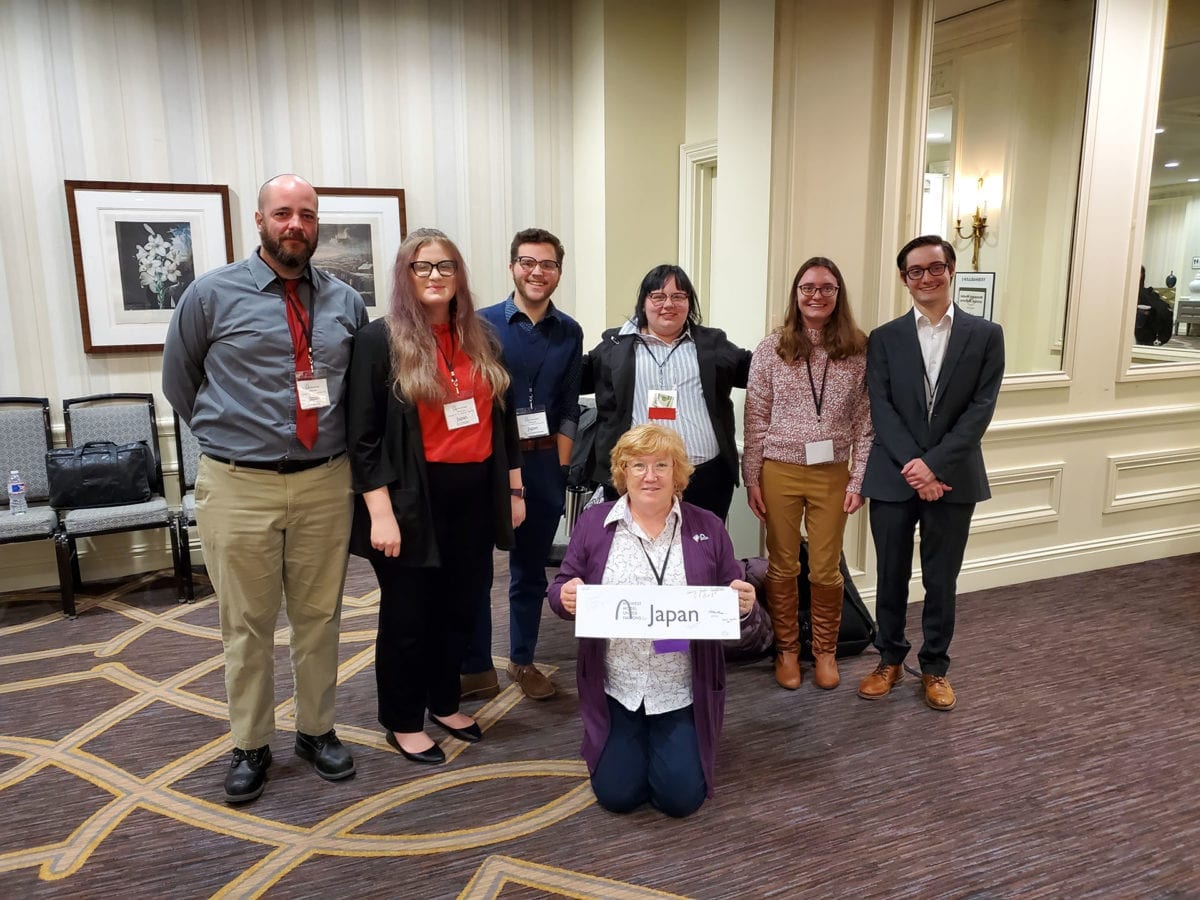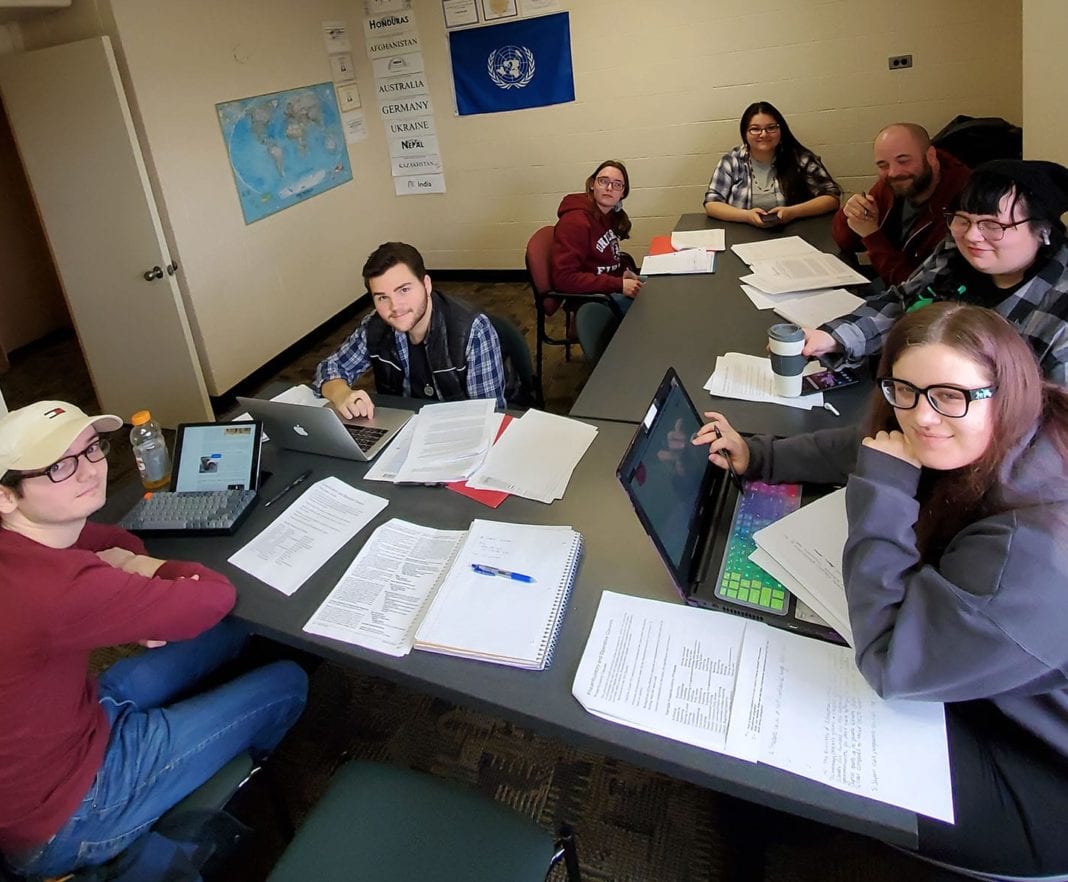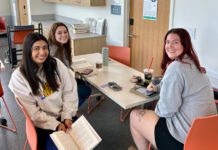Most academic clubs don’t set out to solve the world’s problems, but Model United Nations does just that.
International diplomacy comes to life when students take on the roles of delegates of UN member states. Participants collaborate in simulations of the General Assembly, Security Council and other working groups to negotiate and solve problems on global and regional scales.
Model UN is a nationwide club, with programs in high schools and universities across the country. Teams regularly travel to statewide and regional conferences to participate in UN simulations, where their knowledge is put to the test.
“They represent their assigned country just as the country would represent itself in the actual United Nations,” says Chris Elliott, director of precollegiate programs at the University of Oklahoma.
To prepare for the rigorous and realistic representation of world nations, students spend months researching their assigned country. Their goal is to learn as much as possible about the country’s history, its government and how it behaves on a global scale. As conference nears, teams participate in virtual simulations and practice parliamentary procedure, writing resolutions, negotiating and solving problems.
Students have to be so familiar with the research that they’re able to take on the attitudes and stances of that country in negotiations. This can present a challenge when participants are asked to think as a country whose interests are opposite of the U.S.

Elliott says the students must set their personal feelings aside and step into the shoes of another country.
“You have to think, ‘I’m not a U.S. student representing Denmark. I am Denmark,’” says Cheryl Van Den Handel, Ph.D., associate professor of political science at Northeastern State University.
Naturally, learning and practicing seeing the world from another viewpoint has its benefits. To this end, Model UN equips students with the skills to be a more conscious world citizen.
Van Den Handel recalls a Model UN conference in 2012, when one of her students introduced a resolution to regard Palestine as a state. When the measure was introduced in the general assembly, chaos ensued. The explosive reaction in the assembly was so disruptive that the Midwest Model UN board of directors later voted to prohibit students from introducing a similar resolution in the future.
Later that spring, the real-life UN General Assembly extended non-member observer state status to Palestine for the purpose of offering aid. Van Den Handel says it was interesting to see the issue come before the UN just a few months after the Model UN conference.
“Once you start down this path, you can’t hold onto preconceived notions,” says Van Den Handel. “It broadens your horizons to what you otherwise might not see.”
In addition to exposing delegates to international dynamics, Model UN invites students to interact with peers from other parts of the state. Elliott says it’s impressive to see the level of respect the students have for one another.
As an activity that relies heavily on in-person interactions and relationship building, COVID-19 has forced Model UN conferences to cancel or move simulations online. So, this fall, students across the state continue to negotiate international diplomacy just like the actual UN does – except this time, it’s over a Zoom call.


























